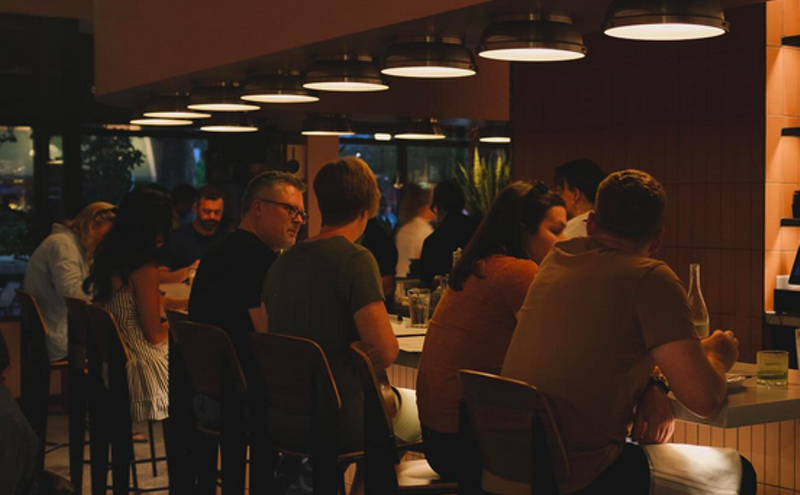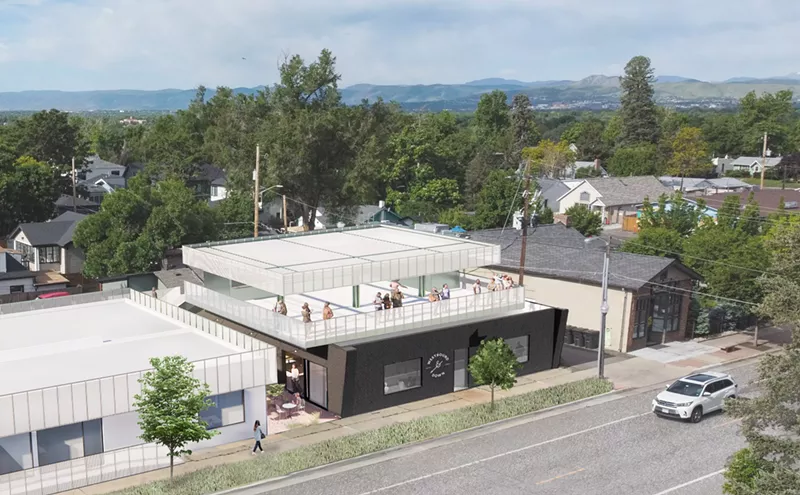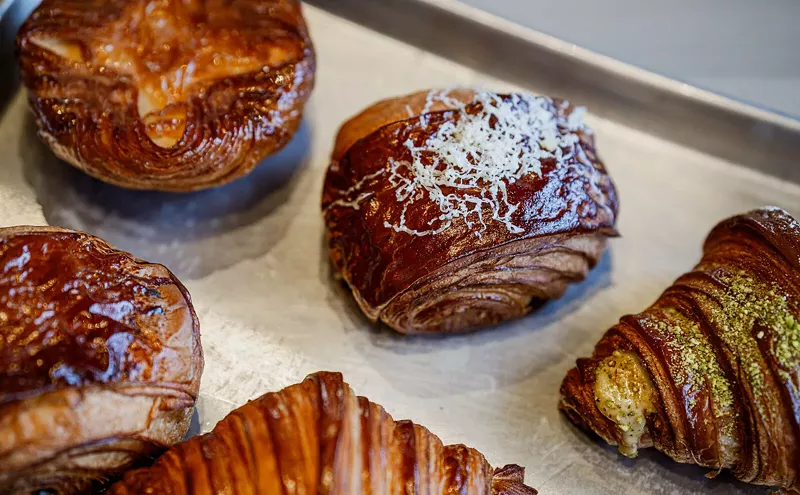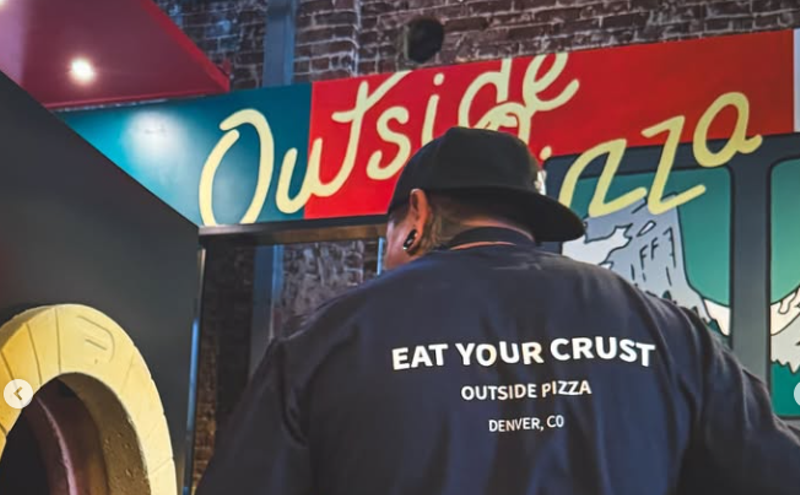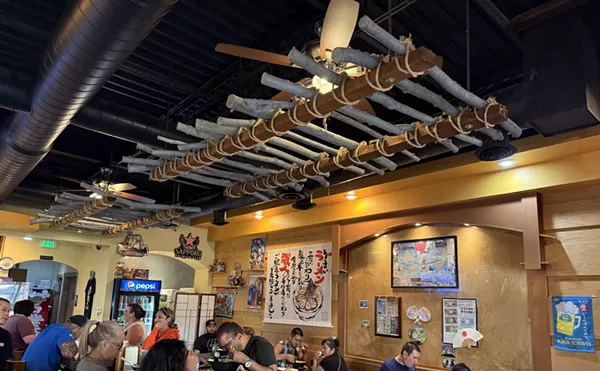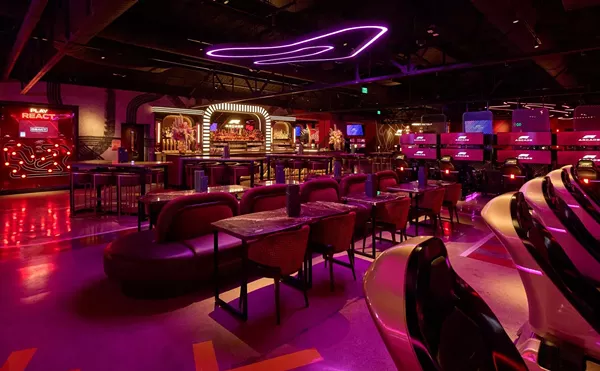Even before Cuba Cuba Sandwicheria existed, Kristy Socarras Bigelow was a poster child for the American Dream. A Cuban-American from Miami whose family didn't allow her to go to college — "Cuban moms are strict," she explains — she'd fashioned a successful career for herself, opening Cuba Cuba Cafe & Bar in the Golden Triangle in 2001 with very little experience and quickly turning it into a favorite spot for a taste of Cuba in Colorado. A decade later she branched out to fast-casual, opening the first Cuba Cuba Sandwicheria in Boulder. Time to cue the music and ride off into the sunset, right?
Her story may have a hint of Hollywood to it, but that was hardly the ending. One day, a customer "came into the sandwich shop and liked it," Socarras Bigelow recalls. "He said, 'I want to partner with you and help you expand.'" That customer, now a partner, was David Karam, former president of Wendy's International and current Sbarro CEO. So what's happening at Glendale's CitySet, where the second Cuba Cuba Sandwicheria opened last summer, is more than the next phase in Socarras Bigelow's story: It's a prototype for the future of mojitos, roast pork and plantains.
See also: Behind the scenes at Cuba Cuba Sandwicheria
And there to welcome you is Flora, a larger-than-life, slightly voluptuous figure painted on the wall by the bar, complete with the high heels, bracelets and short red dress that Socarras Bigelow feels characterizes the modern Cuban-American woman. If you've been to the original Cuba Cuba, you'll be reminded of the scantily clad lady on the wall in the bar there, though this character is less seductive (she's solo, for starters, and there's no mixed fruit on a bikini). You'll also recognize the Latin and Caribbean music; distressed tables; walls blazed in vibrant reds, yellows and blues; and the bar, which isn't part of the Boulder sandwicheria but was added to the Glendale location because "mojitos [are] such a part of our concept," Socarras Bigelow says. (The Boulder location does serve sangria, mojitos and beer — but not from a bar.)
Early one weeknight, while much of the dining room sat empty, I enjoyed one of those mint-flecked mojitos while I waited for my food. I didn't feel awkward the way you can in mostly empty restaurants, thanks to the lively banter between the bartender and the few other guests. More than any other change between the first and second sandwich shops, the bartenders — not just this one, though I did appreciate her pour of mint-infused Bacardi Limón — sum up what's so special about this fast-casual spot: They bring the energy and warmth that streamlined eateries so often lack. The bartenders will even take your order and deliver and clear your food, if you sit at the counter-height tables up front.
Socarras Bigelow says the next locations (they're currently looking at a spot in the Denver Tech Center) might not operate in this hybrid fashion. I hope they do; the blend of sit-down and fast-casual helps Cuba Cuba Sandwicheria stand out from the crowd of fast-casual joints that seem to be springing up on every corner. But even without the amiable bartenders, the sandwicheria's menu would stand out, since Cuban food remains rare compared to many other ethnic cuisines.
That menu focuses on an abbreviated list of sandwiches, salads and plates, with nearly all sandwich fillings offered as plates and vice versa. One exception is the picadillo plate, which reminded me of the slumgullion I ate as a kid, though without the macaroni. Turns out Socarras Bigelow ate this ground beef-and-tomato dish as a kid, too; it's a family recipe. At her sit-down restaurant, the beef is paired with a fried egg and maduros (sweet plantains). Here plates come with rice and black beans (also a family recipe), but you can add those caramelized plaintains or another side for just $2.50 — if you haven't already been working your way through a bowl of the addictive plaintain chips as an appetizer.
The other exception is the Cubano. Although I've seen other restaurants deconstruct this Cuban classic into pieces — pickles, Swiss, ham, pork — and offer it as a plate, you can only get it as a sandwich here. Like most of the other sandwiches, the Cubano is made on sweet, fluffy white bread flown in from a Cuban bakery in Miami. Much as I liked the bread, there was simply too much of it to balance the fillings; my sandwich needed to be stuffed with more of everything, especially roasted pork, before it got sent to the press. As it was, after a few crumb-inducing bites of mostly bread, I sliced off the edges, like a kid lopping off the crust of a PB&J to get at the good stuff.
When properly filled, however, the sandwiches were more compelling than the plates — a good thing, considering this is a sandwicheria, not a plateria. (It would be bad form, don't you think, for the sideshow to upstage the marquee?) The chicken and steak, though thinly pounded and bathed in marinade, don't soak up much flavor — which means a plate's success relies heavily on the sides of mojo (a pungent sauce of raw garlic, oil, lime and bitter orange juice) and chimichurri, respectively, that come with them...when the kitchen remembers to include the sauces. And even when it does, it's up to the diner to make sure there's a blend of flavors in every bite. I watched some guests — mostly men, some in overalls, others in suits — smushing together rice, beans, onions and steak, trying to unite everything on the fork. It's much easier when the bread does that work for you — and tastier, too, since the sandwiches come with toppings not found on the plates.
Shredded lettuce, sliced tomatoes and crispy bits of shoestring potatoes bring freshness and crunch to the pan con pollo and pan con bistec that their plated counterparts don't possess. The pan con lechón also benefits from a bonus ingredient: veggie-citrus slaw. For now, the Cubano edges out the lechón in popularity, but give it time; this sandwich, piled high with mojo-rubbed pulled pork, sautéed onions, mojo aioli and slaw, is a shoo-in for Most Likely to Succeed.
That delicious but inauthentic veggie slaw also stars on a tempura-battered mahi-mahi sandwich on whole-grain baguette. At another point in her career, the purist in Socarras Bigelow might have rejected both the baguette and the slaw. (The pan con lechón at Cuba Cuba Cafe & Bar is still made without the latter.) Now, however, she realizes that "I can tweak things a little bit to appease the audience of today. I'm not feeding my grandmother and her friends."
But if what's happening at CitySet is any indication, she could soon be feeding not just today's fans along the Front Range, but the farther-flung diners of tomorrow.


